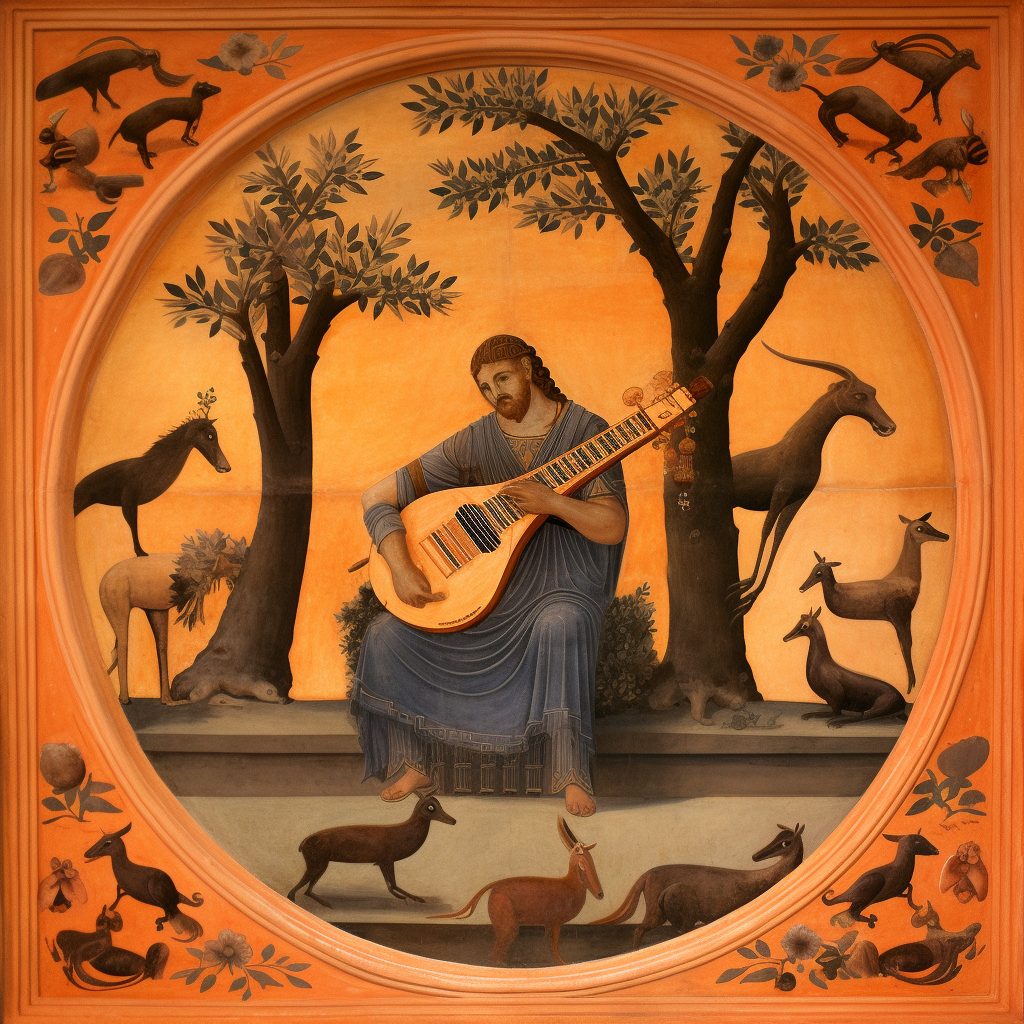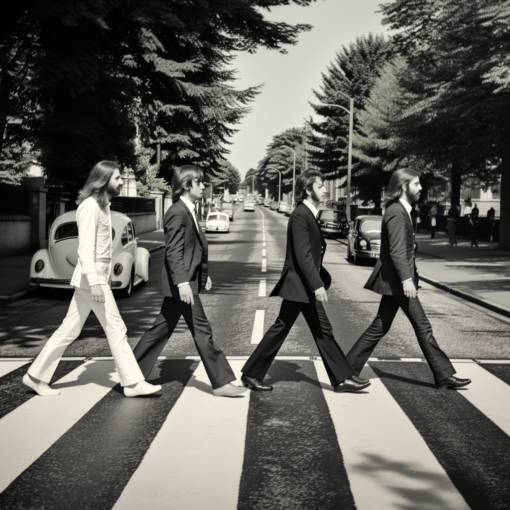Greetings to you, dear reader!
When we speak of music and emotions, our minds often leap to modern compositions, with lyrics that grip our hearts or melodies that make our spirits soar. Yet, music’s potent influence on the human psyche reaches much further back, into the realm of ancient myths and tales. Today, let’s set our time machine to a period marked by gods, demigods, and epic heroes – Ancient Greece.
The power of music in Greek mythology is not just an abstract concept but an active participant in the stories. Often, it becomes the device that shifts the narrative’s course, showcasing its ability to enchant, pacify, or provoke.
In the enthralling world of Greek mythology, music is both a divine endowment and a mortal’s tool. Consider the Muses, nine goddesses who were patrons of the arts, especially music and poetry. They were considered the source of the knowledge embodied in poetic lyrics and myths that were orally transmitted for centuries. These divine figures illustrate music’s sacred status in ancient Greek culture and its connection to wisdom and creativity.
Then there’s Orpheus, a mortal bard whose music could charm beasts and even inanimate objects. His enchanting lyre-playing not only moved Hades, the hard-hearted god of the underworld, to tears but also convinced him to let Orpheus’s wife, Eurydice, return to the world of the living.
There’s also the fascinating tale of the Sirens, creatures whose irresistibly beautiful music lured sailors to their doom. Odysseus, the cunning hero of the Odyssey, had his crew plug their ears with beeswax and tie him to the mast so he could experience their captivating song without falling prey to its deadly allure.
Each of these narratives shows music as an entity with tremendous power, capable of swaying hearts, altering destinies, and even dancing with death itself.
Music was more than mere entertainment in Greek mythology; it was a divine tool, a weapon, a test, and sometimes, a curse. It was woven into the very fabric of myths, reflecting how deeply ingrained music was in ancient Greek culture.
In a way, isn’t that true for us even now? Music still holds the power to charm, soothe, inspire, and provoke. It continues to play a significant role in our personal and collective narratives, subtly orchestrating the rhythm of our lives.
And so, as the strains of an ancient lyre echo across the centuries, I leave you to ponder on music’s timeless influence on our hearts and minds. Until our next musical exploration, fare thee well!
Best Wishes,
Percival

Further Reading:
- Orpheus and Eurydice – Discover the tragic and romantic story of Orpheus and Eurydice and the role of music in their tale.
- The Muses – Delve into the world of the Muses, the divine inspirations for art and song in Greek mythology.
- Sirens in Greek Mythology – Uncover the allure and danger of the Sirens and their irresistible song.





11 thoughts on “The Siren’s Call: The Role of Music in Greek Mythology”
Can you be more specific about the content of your article? After reading it, I still have some doubts. Hope you can help me.
Can you be more specific about the content of your article? After reading it, I still have some doubts. Hope you can help me. https://accounts.binance.com/sl/register?ref=OMM3XK51
Thanks for sharing. I read many of your blog posts, cool, your blog is very good.
Thank you for your sharing. I am worried that I lack creative ideas. It is your article that makes me full of hope. Thank you. But, I have a question, can you help me?
Can you be more specific about the content of your article? After reading it, I still have some doubts. Hope you can help me.
Can you be more specific about the content of your article? After reading it, I still have some doubts. Hope you can help me.
Thank you for your sharing. I am worried that I lack creative ideas. It is your article that makes me full of hope. Thank you. But, I have a question, can you help me?
Logging into 66 Club was a breeze with 66clublogin.info. Super quick and easy. Definitely recommend using this if you want to play now. Don’t wait, check out 66clublogin
Yo, 123win92? Been sniffin’ around, yeah? Heard it’s got some decent action goin’ on. Might just drop by and see what’s what. Check it out for yourself, eh? 123win92
Alright, let’s see if Royal77casino lives up to its name. Hoping for a regal gaming experience and some royal winnings! Feel like royalty at royal77casino
Thank you for your sharing. I am worried that I lack creative ideas. It is your article that makes me full of hope. Thank you. But, I have a question, can you help me? https://www.binance.info/register?ref=IHJUI7TF